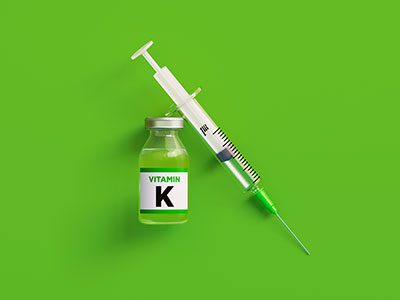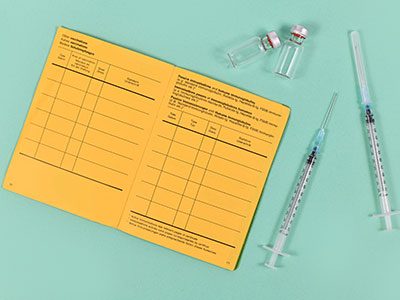In the first days after birth, your baby will have a series of routine newborn health screenings. These quick and often painless checks — including a heel prick test and simple non‑invasive exams — look for rare but serious conditions that often show no symptoms at birth. Early newborn screening allows for immediate treatment that can prevent lifelong complications and even save lives.
Why newborn health screening matters
Some conditions tested at birth don’t cause visible signs in the first few days. Without early detection, they can lead to developmental delays, long‑term issues or even life‑threatening complications. With newborn screening, your medical team can detect these conditions early and begin treatment right away, giving your baby the best possible start.
Newborn screening tests at a glance
| Test type |
Examples of conditions |
Why it’s important |
How it’s done |
| Metabolic conditions |
PKU (phenylketonuria), maple syrup urine disease, MCAD deficiency |
Body may not process nutrients properly |
Heel prick blood test |
| Hormone conditions |
Congenital hypothyroidism, congenital adrenal hyperplasia |
Affects growth, development or stress response |
Heel prick blood test |
| Hemoglobin conditions |
Sickle cell disease, beta thalassemia |
Affects red blood cells’ ability to carry oxygen |
Heel prick blood test |
| Other rare disorders |
Cystic fibrosis, spinal muscular atrophy (SMA), severe combined immunodeficiency (SCID) |
Can impact lungs, muscles or immune system |
Heel prick blood test |
| Hearing check |
Hearing loss |
Early identification supports speech and language development |
Soft earphones play sounds while baby rests |
| Heart screening |
Critical congenital heart disease (CCHD) |
Catch heart conditions needing urgent care |
Pulse oximeter sensor on hand or foot |
| Jaundice check |
High bilirubin levels |
Prevents complications such as brain damage |
Handheld sensor on forehead |
Which newborn screenings will your baby get?
Most states follow national recommendations for more than 30 core tests included in newborn screening. If your state’s panel doesn’t include everything you’d like, you can request additional testing through your provider.
Metabolic conditions
These occur when the body can’t properly turn food into energy due to missing or malfunctioning enzymes. Examples include:
- Phenylketonuria (PKU): Affects breakdown of the amino acid phenylalanine, which can harm brain development
- Maple syrup urine disease (MSUD): Causes a harmful buildup of amino acids
- MCAD deficiency: Makes it difficult for your baby to use fat for energy, especially when not eating regularly
For more information on metabolic conditions, check out our BearGenes video series on YouTube.
Hormone conditions
These involve imbalances in hormone production, which can affect development and metabolism.
- Congenital hypothyroidism: Causes low thyroid hormone, impacting growth and brain development
- Congenital adrenal hyperplasia: Affects hormone production, stress response and growth
Hemoglobin conditions
Hemoglobin disorders, like sickle cell disease and beta thalassemia, involve problems with how red blood cells carry oxygen.
Other health concerns
Some screenings look for rare but serious conditions like:
- Cystic fibrosis: Affects lungs and digestion
- Spinal muscular atrophy (SMA): Weakens muscles over time
- Severe combined immunodeficiency (SCID): Impairs the immune system’s ability to fight infections
Non-blood newborn screenings
Not every newborn screening requires a blood sample:
- Hearing test: Done in a quiet room while your baby rests. Small earphones or sensors check how your baby’s ears respond to sound
- Heart screening (CCHD): A soft sensor on your baby’s skin measures oxygen levels in the blood
- Jaundice check: A small handheld device scans your baby’s forehead to measure bilirubin. If levels are high, a confirmatory blood test may be done
When and how newborn screenings are done
All tests are done within the first 1-2 days after birth while you are still in the hospital. For conditions screened through blood tests, the nursery team will do a heel prick to collect a small blood sample, which is sent to a state laboratory for analysis. If your baby was not born in a hospital, discuss newborn screening options with your birthing team (doula or midwife) and your child’s doctor to ensure the tests are performed and the results are received.
If your baby is tested within the first 24 hours of life, a second sample may be taken later. Some states test all infants twice. Your baby’s heel may be red in the area where the blood sample was taken or develop a bruise. This will go away within a few days and is not cause for concern.
What do I do if my newborn tests positive for any of the tests?
If your newborn’s blood tests are positive for any condition, you will receive results by the time your baby is 5-7 days old. While a positive result may be concerning, the initial positive result will need to be followed up with additional tests to confirm that your newborn actually has a health condition. This additional testing may happen with the support of your primary care provider and a specialist. Specialists are often health providers who are experts in specific conditions like metabolic, hemoglobin or hormonal conditions. Be sure to discuss any positive test with your child’s doctor so you can receive a full diagnosis and treatment plan. Among the treatments your child may need are special formula, diet restrictions, supplements, medicines and close monitoring.
If the hearing test, critical congenital heart disease or jaundice screens are abnormal or concerning, the nursery team will share these results with you immediately – prior to discharge from the hospital. The results should also be included in the discharge summary so that you and your pediatrician can discuss them during your first visit after discharge from the nursery.
Where to learn more about newborn screening
You can research which newborn screening tests are available in your state at Baby’s First Test. Visit the Children’s National Health Library to research health conditions that are included in newborn screening.
If you’re interested in following up on any genetic conditions discovered in your baby’s newborn screening tests, you may want to consult a genetic counselor.
 https://riseandshine.childrensnational.org/wp-content/uploads/2026/01/boy-flexing-after-vaccine-feature.jpg
300
400
Rise and Shine
https://riseandshine.childrensnational.org/wp-content/uploads/2017/11/childrens_riseandshine_logo.jpg
Rise and Shine2026-01-20 16:52:102026-01-20 16:52:10What parents should know about childhood vaccines
https://riseandshine.childrensnational.org/wp-content/uploads/2026/01/boy-flexing-after-vaccine-feature.jpg
300
400
Rise and Shine
https://riseandshine.childrensnational.org/wp-content/uploads/2017/11/childrens_riseandshine_logo.jpg
Rise and Shine2026-01-20 16:52:102026-01-20 16:52:10What parents should know about childhood vaccines





















Leave a Comment
Want to join the discussion?Feel free to contribute!